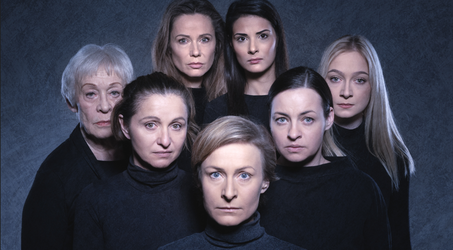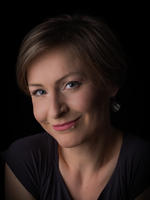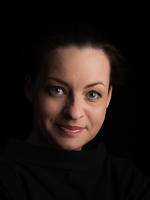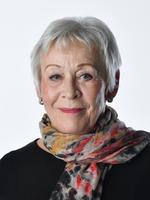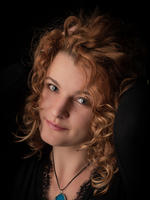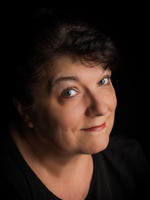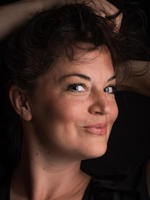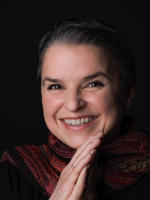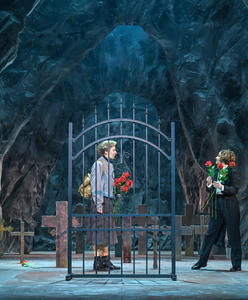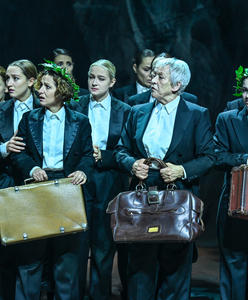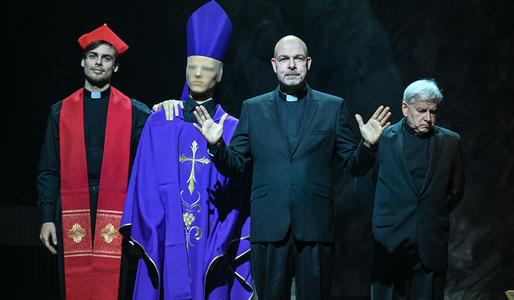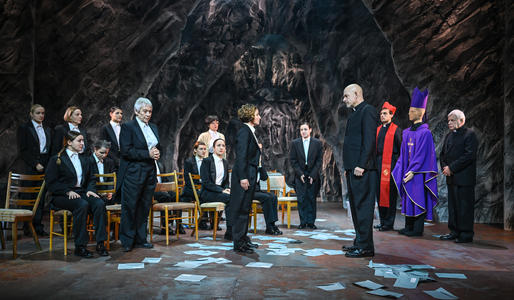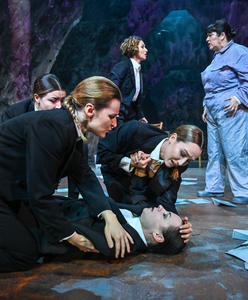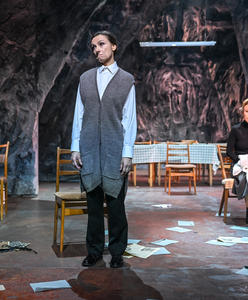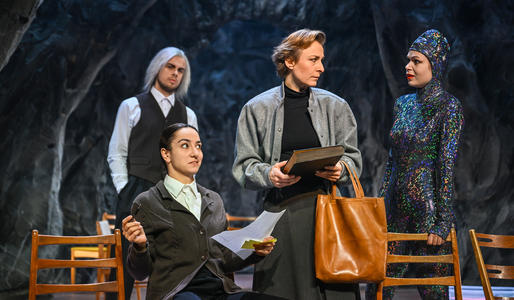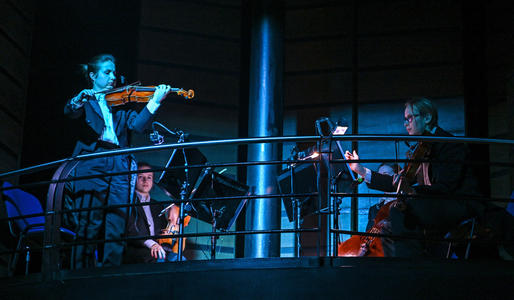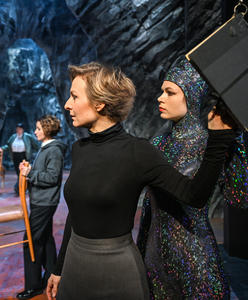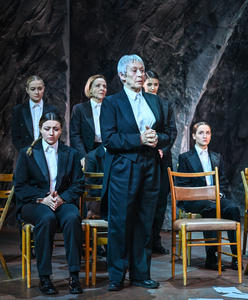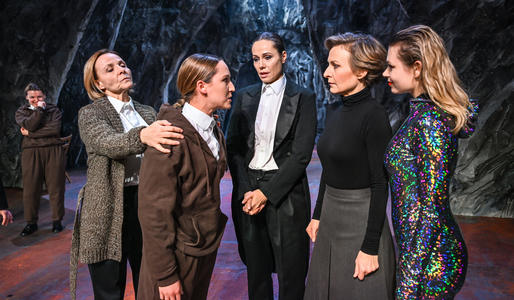Dramatization of a novel about women, faith and evil
Brno-born Kateřina Tučková, author of the novels The Expulsion of Gerta Schnirch, The Goddesses of Žítková and others, is currently one of the best and best-selling Czech authors. Readers have been waiting for her latest novel, White Water for ten years, when the author went through the archives, studied materials, talked to contemporaries, stayed in a monastery and also went through a complex spiritual search that helped her get closer to her characters from the inside. She says it’s her deepest book, and it won the 2022 National Book Award for Literature.
A small tucked away village with the poetic name of Bílá Voda (White Water) hidden in the shadow of the border mountains. Crowds of pilgrims used to come here to beg help from the miraculous statue of the Virgin Mary. Centuries later, Lena Lagner arrives here to hide from her past, which has brought her to the brink of suicide. Instead of a monastery with a large religious community, however, he finds only a few nuns led by the peculiar Evarista. The latter came to Bílá Voda on the last night of September 1950, when the communist regime, personified by the demonic father Plojhar, dragged all the nuns to the collection monasteries as part of Action Ř. At that time, the young Evarista was given a choice: return to civilian life or share future fate with the others. She didn’t hesitate for a moment. Like all nuns, she was put to forced labour and subjected to humiliation in a communist prison and torture in order to renounce her faith in God. All in vain. But Lena discovers that this is only the beginning of Evarista’s dramatic story, and she soon realizes that the demons surrounding the past of the local nuns have not disappeared, and are part of her own destiny. Lena not only continues her search for the fate of the White Water sisters, but also delves into her own pain-filled inner self...
Both the novel and the production with its gripping plot are inspired by real events, the book not only covers a neglected chapter of totalitarian injustice, but also opens up the question of the unequal status of women in the Church and indeed in society as a whole.
Brno City Theatre presents a stage adaptation of Kateřina Tučková’s latest novel, dramatized and directed by the renowned director Dodo Gombár, who is known to our theatre audiences for his adaptations of literary works such as The Goddesses of Žítková (blood is blood) also from the pen of Kateřina Tučková (2017) or Paradise Lost (A Report on Man) based on John Milton (2020).
Please note: Tobacco products are used in the performance.
Of course, there is no smoking in the public areas of the Brno Municipal Theatre. If tobacco products are used on stage as part of a prescribed acting event, it is a work of art that enjoys the protection of inviolability under the Copyright Act. A cigarette is thus considered a prop. The use of cigarettes, even electronic cigarettes, in performances already performed is considered to be an artistic effect which cannot yet be replaced by any other means. It is not the smoking of cigarettes or other tobacco products, but the artistic representation of this activity.

